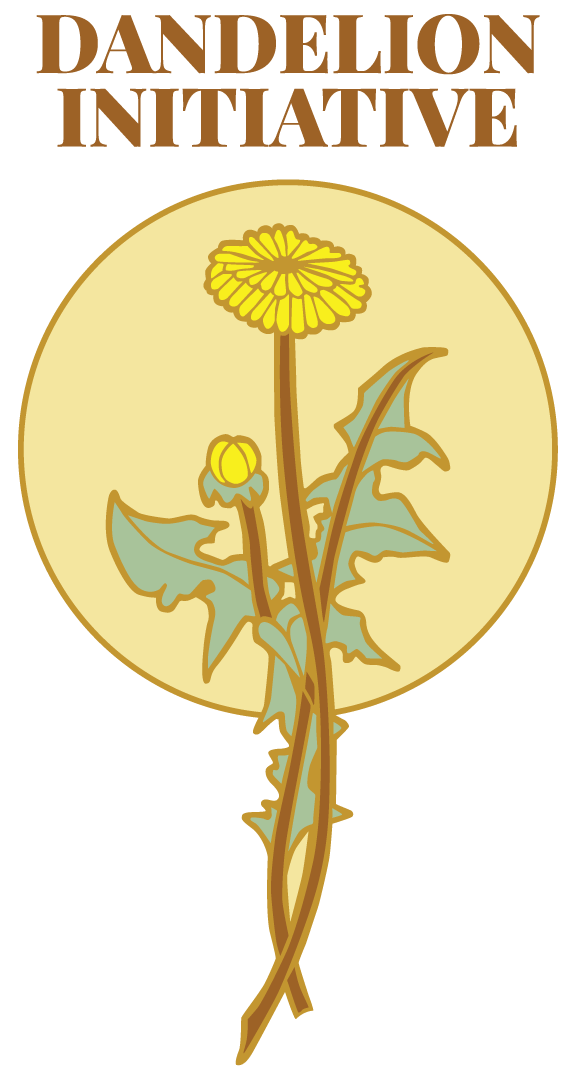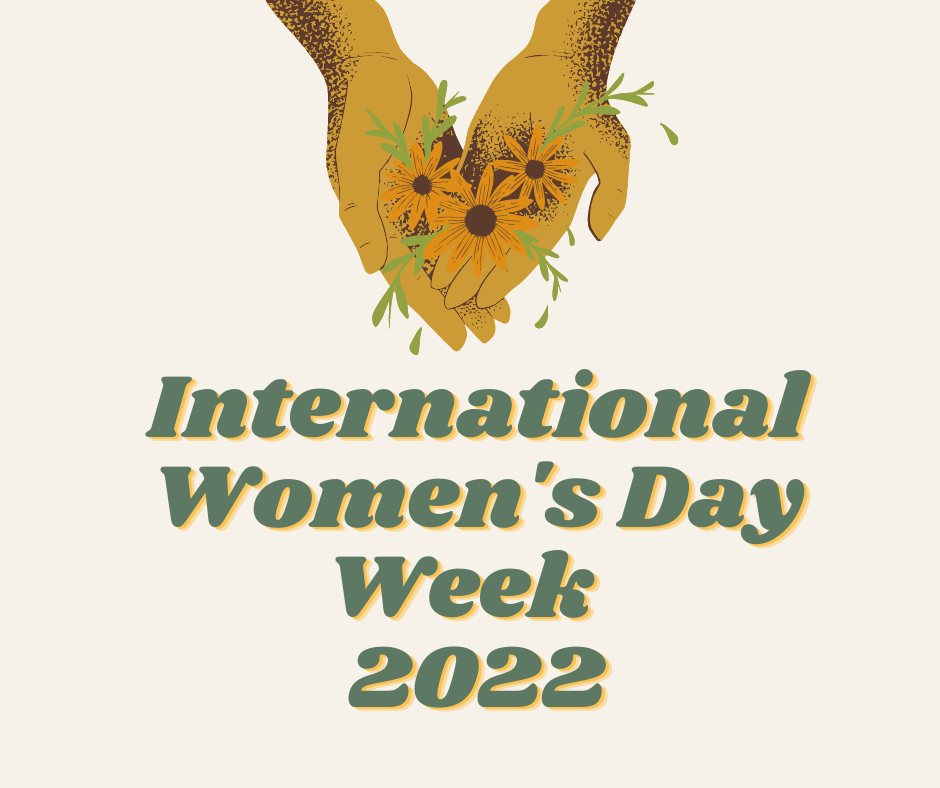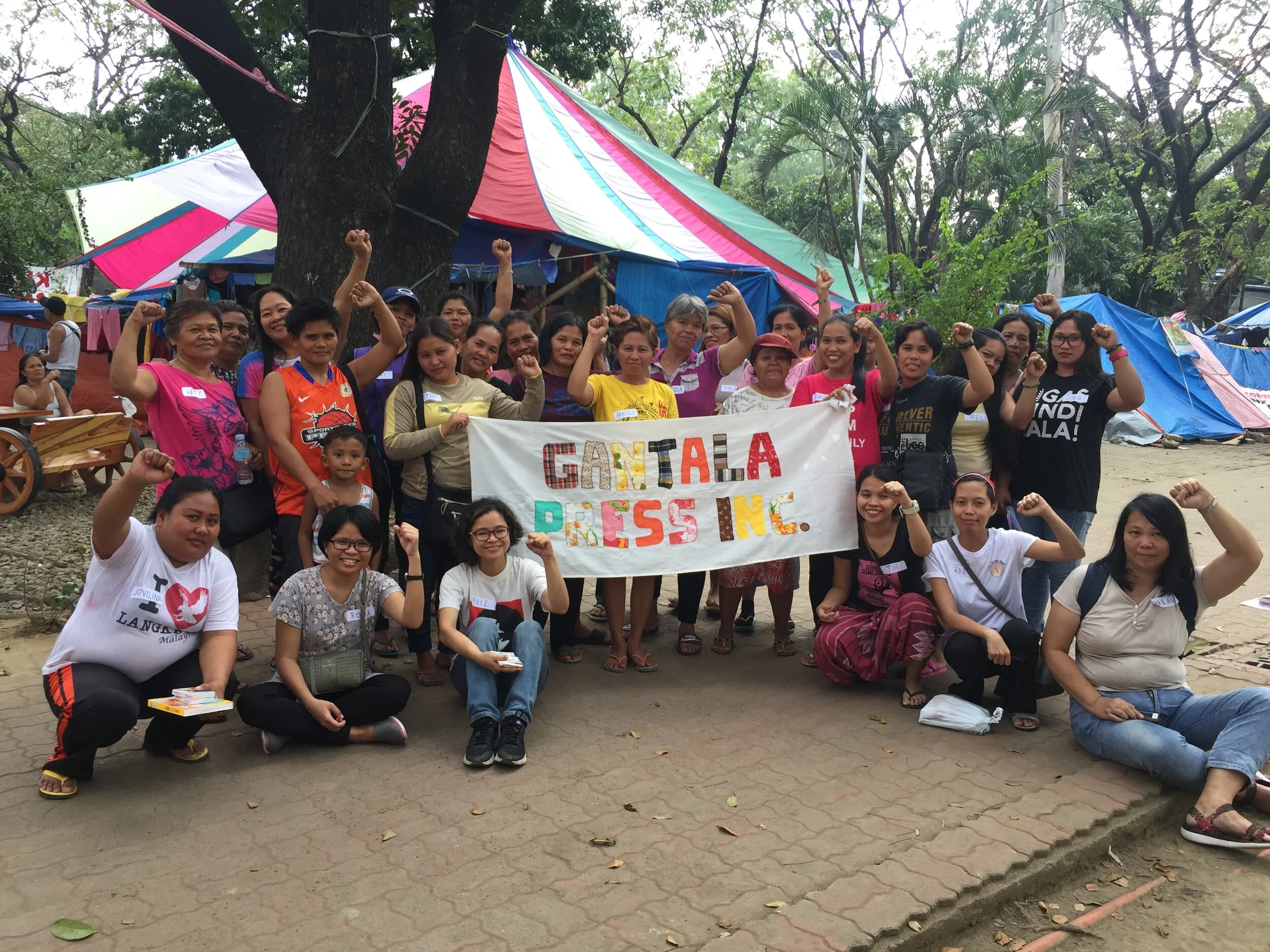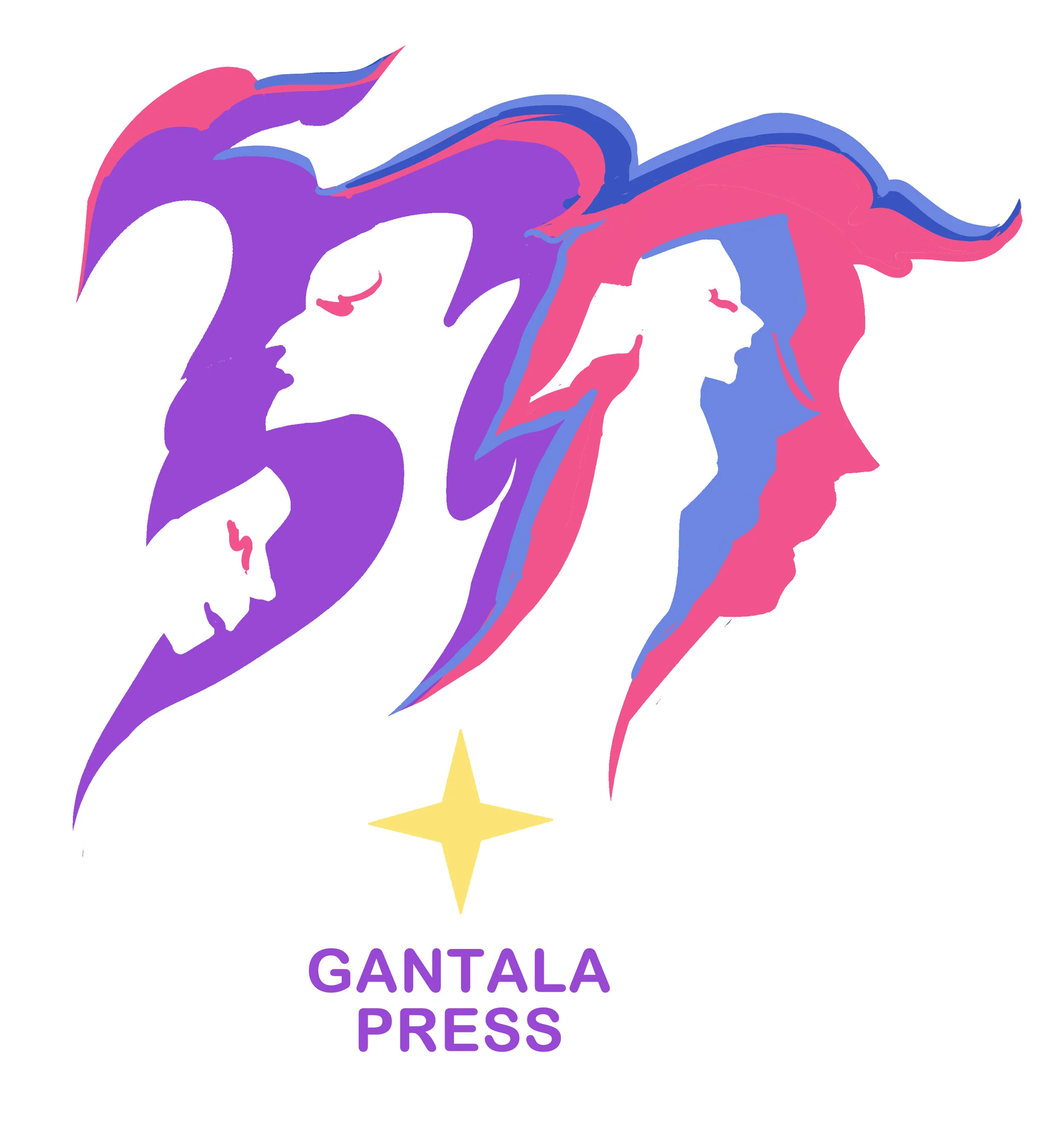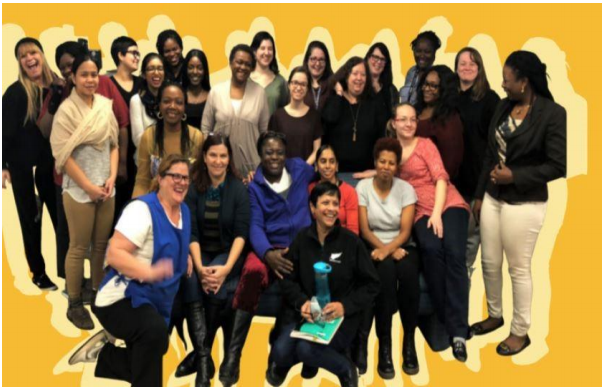
INTERNATIONAL WOMEN’S DAY
International Women’s Day 2022
This year our team dedicated some time for reflecting, resting and reconnecting with our communities of care. We also wanted to share offerings in the form on a small toolkit. Explore the toolkit here for some music, art, learning, feminism and resistance!
International Women’s Day 2021
This year for IWD we are here to celebrate three incredible organizations and the women who keep essential services going despite it all.
We donated $500 CAD from your donations to us! to each of these organizations and leaders so they may continue their valued work during the pandemic and afterward. Please consider donating and supporting their herstory and work as well. Scroll below to see: Gantala Feminist Press, Philippines, E-Romnja Association, Romania, The Redwood, Toronto, as well as previous years.
Forwarding the Struggle: Gantala Press, Philippines.
Gantala Press is a feminist literary collective based in Metro Manila, the Philippines. Since our formation in 2015, we have produced books, anthologies, comics, cookbooks, and zines that center on women’s issues and narratives.
We endeavor to document the current political situation in the Philippines through literary and visual works.
Initially, we formed our group in response to the lack of women’s presses in the Philippines or even in Southeast/Asia, and to the under-representation of women in literary institutions and discourses such as conferences, lectures, panel discussions, awards, and anthologies. Now, we do our best in using feminist publishing as a platform for women to share their own stories.
Some members of the press volunteer with the Amihan National Federation of Peasant Women and helped Amihan organize Rural Women Advocates, Amihan’s formal volunteer arm. We have been co-publishing books and zines, and co-organizing discussions, with Amihan and RUWA.
We produce and publish books and zines by women, especially women from marginalized sectors. With Amihan and RUWA, we organize fundraising events such as bookselling for peasant and worker groups, or donation drives to support the needs of peasant women, often the first to be ignored when calamities strike. We facilitate writing and zine-making sessions with women from various sectors, including farmers, workers, and the urban poor, and speak in conferences on women’s issues, feminist publishing, and others. We host an annual all-women small press fair, the first of its kind in the country.
Our work is important because women from the basic masses are:
1) invisible in our cultural consciousness; when one says “farmer” you immediately think of a male farmer and his carabao, not the woman who bears one-half of the production work on top of her work inside the home.
2) Women who get to be represented in culture are women who have worked their way to the top of a system that remains feudal, bureaucrat-capitalist, imperialist, and patriarchal. We need to dismantle this system where only the interests of the ruling class are nurtured and protected, including by women who belong to this class, always at the expense of the poor.
3) Where there is oppression, there is resistance, and women from the basic sectors are strong, courageous, active participants in the struggle. They are a great inspiration to many other women and young people, and Gantala Press can help demonstrate that.
The people, the “voiceless,” are the source of the stories that matter.
They and their work should be protected because the government’s impunity is literally erasing their existence.
During the COVID-19 pandemic, we are deceived that we are okay, but every day the stress of living under this administration is mounting. We wake up to news of a peasant women organizer being wrongfully arrested, or to news of yet another woman political prisoner losing her baby to illness because the baby had been separated from its mother after birth. Or, peasant leaders and
indigenous peoples are killed in the middle of the night. These are leaders who have long been fighting against mining companies, or against mono-crop plantations in ancestral lands. We live in a climate of terror: we are terrorized with the knowledge that we could not afford to get sick; and terrorized at the government’s fascism and impunity. Recently, officials in the Cordillera region up north signed a resolution calling on state forces to “conduct Tokhang (assassination) to left-leaning personalities in the government, media, and other entities.”
What has “saved” us from complete misery is our continuous collective work.
We have been producing regularly, writing statements on issues, and even publishing two digital zines during the pandemic. This year we have several book projects in the pipeline, including a zine on women political prisoners, a storybook about former “comfort women,” a book on the pioneers of the women’s health rights movement in the Philippines, poetry by a peasant woman, and a book on community gardening by urban poor women. We have been organizing educational discussions, where we talk about books we're reading, histories of the women's movement, feminist theories. We endeavor to take care of and strengthen the collective by providing opportunities to study and create with one another despite the social distance, and by inviting new volunteers to the group.
We go by bell hooks’ definition of feminism as a movement to end sexist exploitation and oppression. As a collective whose members also volunteer in other mass organizations, we continuously study the idea of feminism vis-a-vis the history of the people’s movement in the Philippines. We believe that there is no liberation for women if there is no liberation for all the poor and oppressed. And there is no liberation for the poor and oppressed without the liberation of women. We dream for the day when women won’t have to debate whether feminism is an acceptable and powerful mode of struggle and resistance.
To fellow young activists, we cannot emphasize enough the value of being part of a collective, of being among comrades, of organizing ourselves, and linking our struggles with the struggles of the masses. When in the collective, listen carefully to one another. Do not be afraid to speak out, as well.
Be open to criticism and self-criticism. A revolutionary is constantly in the state of transformation and becoming. This process is difficult and endless. Be ready to learn from your mistakes, and to reflect and strategize on how to use that learning in our work moving forward.
Beyond representation or recognition, let us fight for the emancipation of all women from all forms of oppression—from the oppressions of patriarchy, feudalism, capitalism, and imperialism.
Check out our works, writings, and activities here: gantalapress.org. Buy digital copies of some of our works here: payhip.com/GantalaPress. Donate to Gantala Press on PayPal. To know more about the Amihan National Federation of Peasant Women and how to help, visit amihanwomen.org
Follow on Instagram and Facebook @GantalaPress
E-Romja Association, Romania
You can donate to E-Romnja by emailing the founder directly carmen.gheorghe@e-romnja.ro
I am Carmen Gheorghe, founder and president of E-Romnja, an association that focuses on Roma women’s empowerment in Romania in rural and urban communities.
I have been building spaces for 18 years through my work as an activist, feminist and academic with other Roma women to heal our collective trauma's and build/reshape our own narratives based on intersectional perspectives.
E-Romnja is an NGO established in July 2012 by a group of Roma activists and feminists. Our Mission is to affirm, promote and raise civic involvement of Roma women in communities and society. We aim to increase Roma women’s participation in community, through local development that empowers them and enables them a better future for women. Our aim is, on one hand, to increase the participation and visibility of Roma women to all spheres of economic and social life, and on the other hand, we aim to do this using mainly grassroots tools. At local level, we count on the support of Roma women we work with. In every community we work, we develop initiative groups and together with them we develop local actions.
We act on an intersectional model both at the local and at a national level.
This concept has become part of our work due to the fact that we acknowledge that women issues can be practically any dimension that affects women’s lives, from lack of infrastructure, force eviction, identity cards to violence, sexual harassments, or the lack of consent in marriage, etc.
The intersectional work we do is also based on our multiple identities as ethnics, gender, sexuality, etc.
But since we can’t address all our dimensions due to many reasons including time, expertise, insufficient resources both financial and human we decided to act in different networks, coalition, informal groups where our solidarity and input can be of great contribution.
Therefore we developed over time, informal alliances with different NGO’s, activists, on topics such as: reproductive rights and sexual education, sexual violence, LGBTQIA issues, force evictions, social assistance. These subjects are very relevant for our work and we benefit from its expertise and knowledge. Even though some of them are not the priority at present due to the reasons mentioned above, we consider that it is important to be part of, to contribute, involve, and show solidarity towards the issues. At the same time, we make sure that our voice as Roma women is represented and addressed.
At the grassroots level, we developed the SORA model, a Roma feminist intervention developed in many years of work and experiences gained from working with Roma women. SORA is the abbreviation of study, organization, revendicate, and action and is adapted for each community we work with. It can also be used for other groups with the condition to respect the ethnics in grassroots work and engage Roma women in the process. It has rules for those who want to apply it due to the fact that it is a learning process both for NGO’s and communities. It's not a uni-deminsional intervention where communities learn from us but come on both ways as activists also have to learn from women’s experiences. Here the ethics of work is important as to check your privileges, power position, and vision starting from the fact that you don’t know people’s problems and you have to start listening.
At the local level, we aim at promoting diversity and sisterhood among Roma as there are differences based on religion, kinship, gender identity, social status. Through our development projects, we managed to change the local and institutional practices and to increase respect for women’s rights in a more effective and innovative way.
The Pandemic has affected the communities where we work, gravely. I learned that when Romania has limited resources, Roma people are the first excluded from humanitarian aid, social services, and local investments. This was exactly what happened and our communication with authorities decreased.
Let me give you an example: a mayor makes a list of 200 people for humanitarian aid. Out of the 200 on the list, there is not one single person from the Roma community which counts more than 1500 people. When asked why they are not on the list as they also struggle with poverty the answer was that the funds come from the private sector and they don’t agree with this. The level of racism in society was more visible due to many cases of police abuse, giving disproportionate fines for not respecting the rule to be on the streets without a formal declaration.
As for many Roma women, their situation was affected both in terms of security and access to services. Many were forced to stay with their aggressor in the same house, shelters and other services for women were inaccessible. Due to national crises, the health system was denying women’s rights to abortions. The state has a big responsibility but fails to address women’s rights and especially those with historical background, cultural and based on other gender identities.
It takes years to solve issues in the community, patience, trust, and sisterhood solidarity so that I don’t get discouraged as societies don’t listen. To have all this we need to build our spaces for collective support, encouragement built as there is fighting racism, sexism, classism, homophobia is a long batter with a lot of loneliness.
My intersectional feminism was and is constantly shaped by the experiences of Roma women in communities, our historical oppression, and culture.
As a feminist, I relate more with experiences of oppressed groups such as LBGT+, Chicana Latina’s women, and people of color as there is more potential to develop intersectional narratives articulated on identities and social injustices. As Roma feminists, we need to become visible allies and to build together intersectional spaces based on sisterhood.
Follow them on Instagram and Facebook @
The Redwood, Toronto
Prepared by the Executive Director and our Shero - Abi Ajibolade
The Redwood is a 37-bed Violence Against Women (VAW) shelter in Toronto providing crisis support to women and their children fleeing abuse.
In addition to case management, we offer in-house counseling and programs which educate women about the cycle of violence, facilitate healing from abuse and equip women with practical skills for independent living. Our Community Outreach team works with community partners to educate women, boys and girls about gender-based violence.We also operate a 24/7 online helpline called iDetermine which offers live chat and texting options for women experiencing abuse.
Our service users are a diverse group of women who hold complex intersectionalities and life experiences. While some report the most recent case of abuse as their first experience with violence, the majority of residents have experienced numerous incidences and forms of violence throughout their lives. The impact of repetitive exposure to violence on one’s mental physical and emotional wellbeing is often compounded with persistent experiences of systemic oppression influenced by a woman’s intersectionality, namely her race, age, ability, and sexual identity in addition to her economic and immigration status. The women we serve, often report consistent experiences of blatant discrimination based on these factors denying them access to basic resources and exposing them to precarious and dangerous situations. Despite enduring challenges, the women we serve have immense resiliency and determination to live free of violence and have consistently shown their ability to break the cycle of abuse and lead fulfilling lives once re-integrated into the community.
While intimate partner violence, a prevalent form of gender-based violence, is recognized as a public health concern impacting the well-being of millions of women and children worldwide, there remains an immense stigma for women living in and fleeing violent homes. 2018 statistics show that IPV accounted for nearly 30% of reported violent incidents in Canada, with 79% of survivors identifying as female. Despite the alarming figures, there remains a belief that IPV and GBV is a private matter, allowing for a vicious cycle of abuse, shame, and secrecy, which act as measures to keep women in increasingly dangerous situations.
We are committed to continuing to educate women and girls about the prevalence of gender-based violence and the cycle of abuse and providing a safe haven where women can access safe housing, heal from abuse and gain the resources and skills to live free of violence.
Recognizing the importance of early education in GBV and healthy relationships, our Outreach team works closely with schools across Toronto to educate both girls and boys about the cycle of abuse, the devastating effects of violence, and ways young people can protect if they are experiencing abuse.
Amid the COVID-19 pandemic, we have experienced a greater influx of calls to both our crisis line and our online helpline, iDetermine from women living in violent homes. Many report that the severity and frequency of violent episodes have increased due to stay-at-home orders imposed by the government. While we are limited by our capacity in shelter, we continue to refer women to resources that would best assist them. Supporting women in accessing services through the Toronto social services, legal and medical systems has been challenging due to high demands and longer wait times as a result of the pandemic. In addition to fewer spaces due to social distancing measures, the duration of stay for families in shelter has grown as processing times for social housing has increased. Our counselors continue to work closely with women as reports of poor mental wellbeing including experiences with anxiety and depression have increased significantly over this time period. A great deal of time and effort is made to ensure that we are taking all health precautions to avoid an outbreak of the virus at the shelter. We are limited by our facilities due to the necessity of shared washrooms, single-floor occupancy and other limitations imposed by an older facility. Despite the many challenges posed by COVID-19, we have been so fortunate to experience an outpouring of support from the community and government who have responded so urgently and generously, meeting our needs and lifting our spirits throughout this difficult time. We also commend staff who continue to come in and support women and children.
Our feminism is intersectional and operates with an understanding that while all women have experienced a degree of hardship as a result of living in a patriarchal society, our experiences and challenges are unique to each of us and are greatly impacted by each set of intersecting identities.
We aim to create opportunities for empowerment and healing in light of each woman’s unique experience and self-identity.
While the desire and need to gain access to housing, financial security and wellbeing is universal to all women, we recognize the particular set of barriers each woman faces based on the unique identities she holds. Different considerations are needed in an effort to obtain even the most basic and universal needs.
Above all, we respect the self-determination and expertise of the woman to determine what empowerment and safety means for her and work with her needs to achieve this vision. Recognizing the privileged position from which we as staff operate, it is most important to remain mindful of the implied power dynamic and facilitate opportunities for women to develop and utilize skills to meet their needs and work toward their goals. While our role as advocates involves removing any constricting and discriminatory barriers posed to each woman healing from abuse, our main role is to support each woman to meet her self-identified goals using her own capacity and capability in order to grow in confidence. With this in mind, one of the most important things we can do is take a step back, listen and respect each woman’s self- determination. This is one small but keyway to establish a strong allyship and sisterhood. Activism in the area of GBV requires action at multiple levels and calls for the involvement and expertise of different types of activists.
We at The Redwood primarily work within the system and look for immediate solutions that can ensure women break the cycle of violence and experience the fewest possible hurdles to securing long-term housing for themselves and their children. We believe that it is equally important to effect change on the broader level so barriers to basic needs such as safety and housing no longer exist. As mentioned before, one of the greatest barriers to leaving an abusive relationship is the secrecy and shame that surrounds it.
There is so much still to be done to remove this belief and much of this can be disrupted with education and resource sharing – a type of advocacy that can be done by just about anyone in their own community through conversation, social media, or involvement with a local GBV group. While the work is challenging and filled with many hurdles, there is a great deal of hope for a future where perpetrators of gender-based violence are held accountable and all women can have equal access to safe lives and homes. The Redwood operates on 4 pillars: Courage of survivors, compassion and kindness of donors and supporters, hard work and passion of staff, and community resolve to end GBV. Working from the framework of these 4 pillars makes it easy to see the impact of each effort made in the fight against GBV, and in turn keeps us going.
Visit the Redwood’s website where you can click donate https://www.theredwood.com/
Follow them on social media @TheRedwoodTO
International Women’s Day 2020
Who has a seat at the table? When and how will the tables turn?
International Women’s Day (IWD) was born from working women working for women, from 1909 till today. Today in 2020, we continue our fight, together, unified against all the elements that aim to divide us. We recognize that movements are built with collaboration, hard work, and celebration alongside one another. When we lift each other up, we resist the divisiveness of the patriarchy.







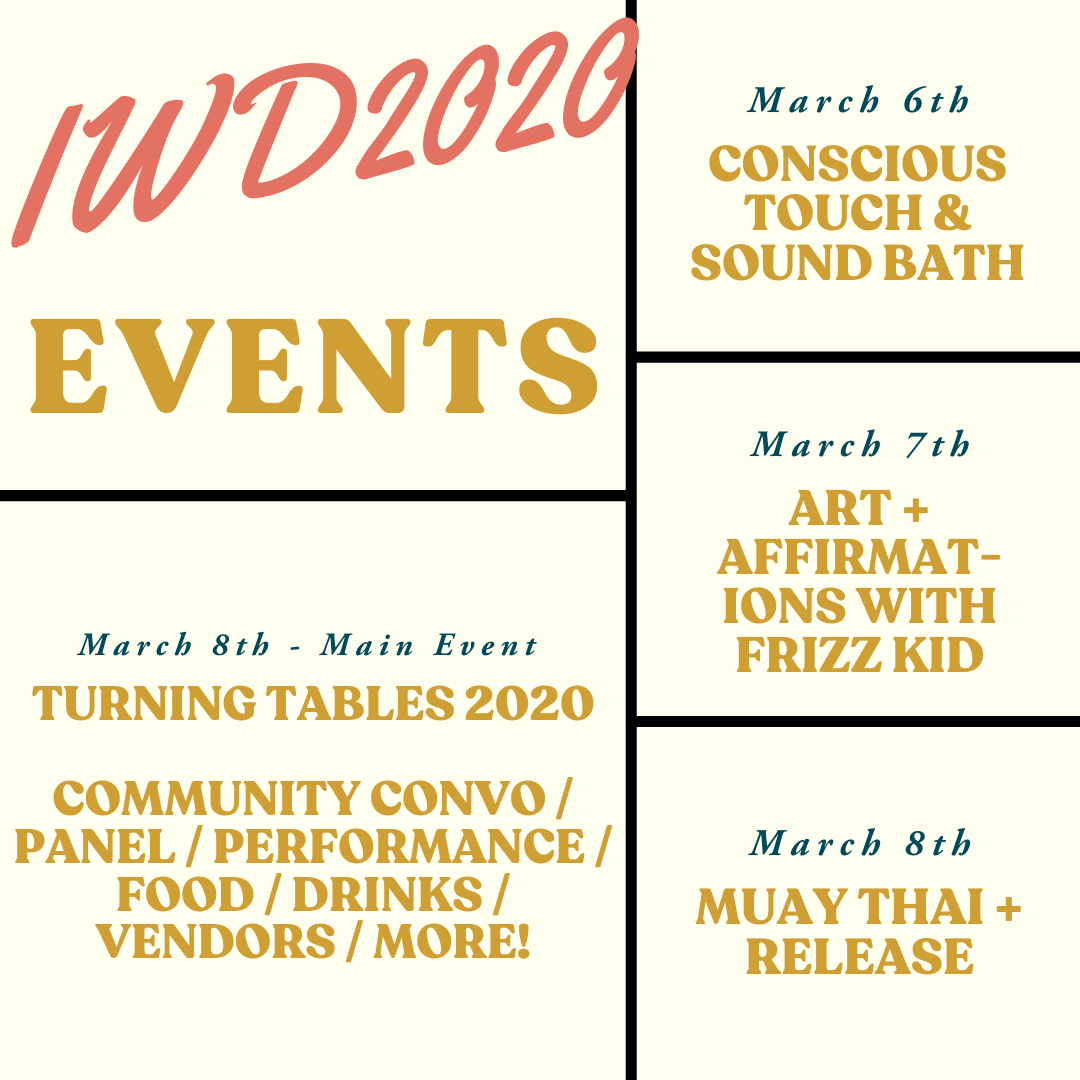



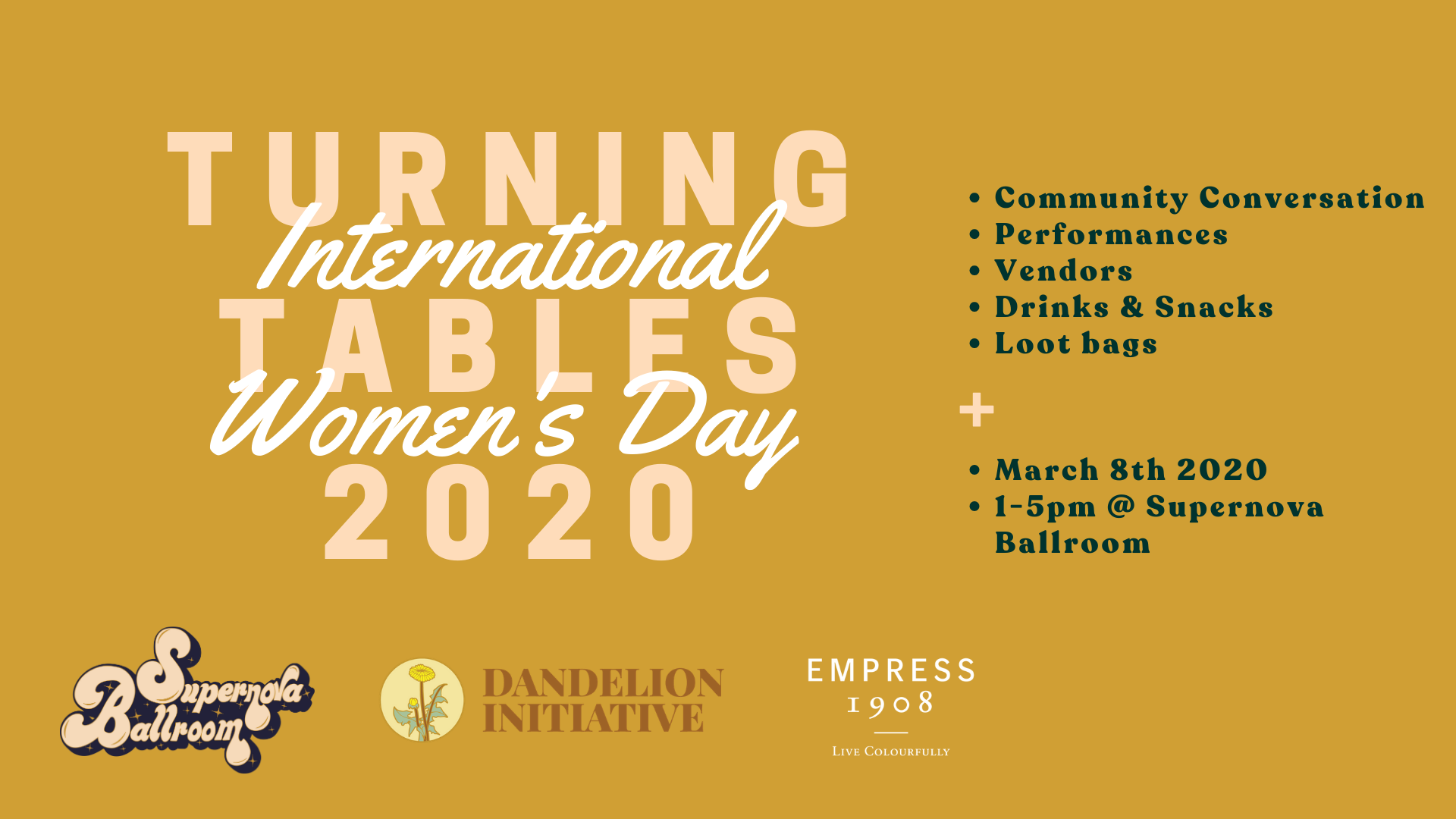




Join us in celebrating the legacy of kitchen table conversations with women who are working to make spaces safer.
Kitchen table conversations can ignite action, create community, solve problems, reduce barriers, and start revolutions. Women and feminized people across time have used kitchen table conversations to reclaim their narratives and empower one another. Today, we are going to do the same.
Every woman and feminized person has a seat at this table and an opportunity to participate however you choose.
Instead of your traditional panel, the community conversation will build conversation between the audience and the panelists. We honour the panelist’s labour, expertise, and lived experiences as well as yours. At this table, everyone is able to contribute.
Speakers include: Suzanne Barr, Cara McArthur, Chantelle Gabino, Hassel Aviles and will be moderated by Viktoria Belle.
As a participant, you have access to the conversation points beforehand so you can come prepared with questions and contributions in an informed way (conversation points will be shared with guests when they secure a ticket).
We end our conversation with poetry from Jungle Flower Energy, the founder of Reclaim Your Voice.
After the kitchen table conversation, there will be drinks, good food, great conversation, and community vendors offering food, astrology readings, custom cocktails, jewelry, care products, healing experiences, and more.

